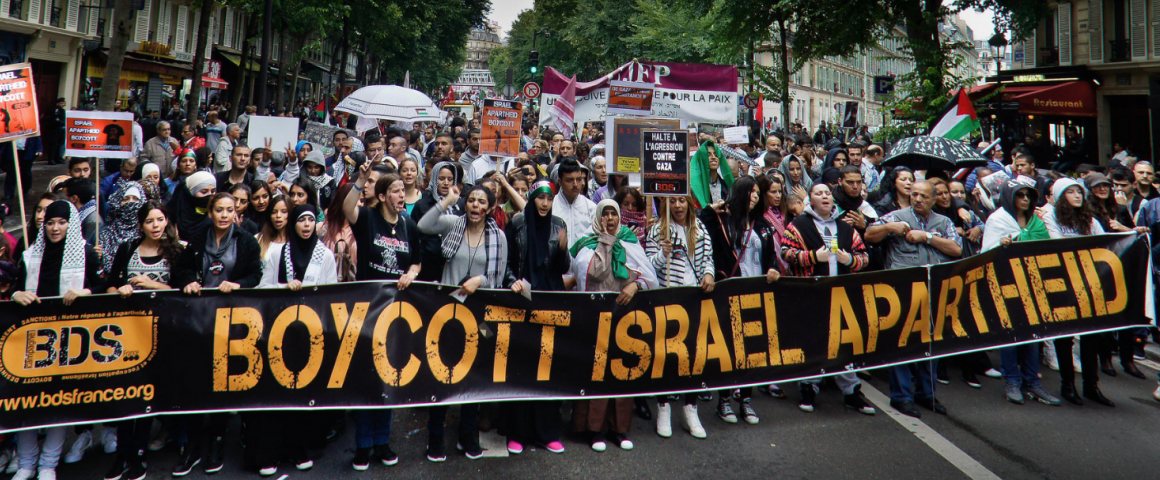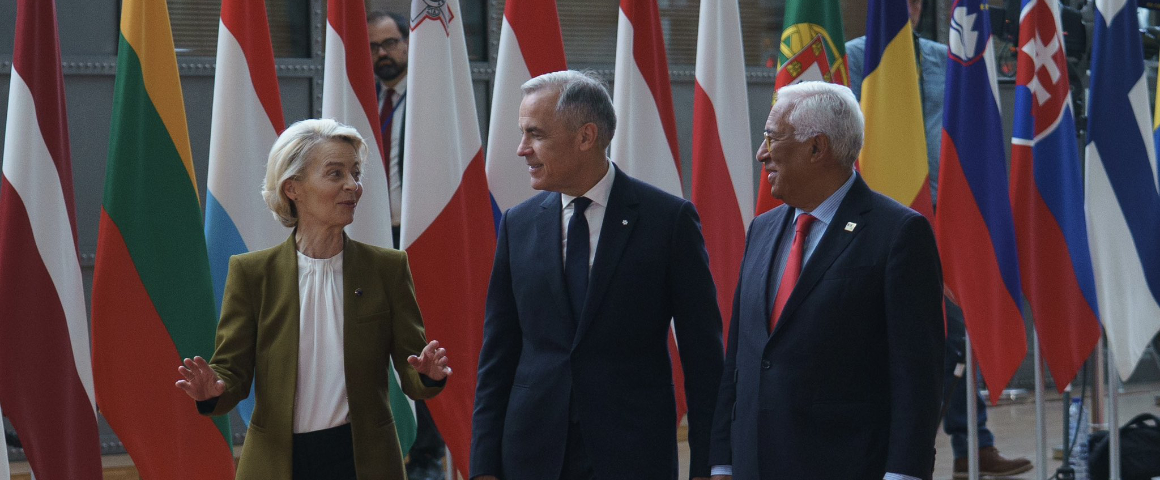By Rimmy Riarh
On July 9 in 2005, 170 Palestinian civil society organizations called on the international community to stand in solidarity with Palestine. Specifically, they appealed for boycotts, divestment and sanctions:
“We, the representatives of Palestinian civil society, call upon international civil society organizations and people of conscience all over the world to impose boycotts, and implement divestment initiatives against Israel similar to those applied to South Africa in the apartheid era. We appeal to you to pressure your respective states to impose embargoes and sanctions against Israel. We also invite conscientious Israelis to support this Call, for the sake of justice and genuine peace.”
This “BDS Call” (Boycott, Divest, Sanction) explicitly cited the example of apartheid South Africa, and the two cases have often been linked. South Africa offers a powerful example of the defeat of a brutal colonial regime as well as potential tactics that international supporters can utilize to support Palestine. Additionally, the widespread contemporary recognition of the legitimacy of the anti-apartheid struggle and the criminality of the South African apartheid regime – including in those countries which most vehemently support Israel today – gives the Palestinian cause a potentially potent ideological weapon.
As such, those of us engaged in Palestinian solidarity work in Canada must make a renewed effort to emphasize BDS as a key tactic in the struggle for the liberation of Palestine.
BDS in the fight against apartheid in South Africa
The earliest support for sanctions against South Africa often came from countries engaged in decolonization struggles of their own, including India and Jamaica. This group of countries was also instrumental in pushing the UN to adopt sanctions in the 1960s, such as a voluntary arms embargo in 1963 which became mandatory in 1977.
Canada, along with many of the other major Western powers, was relatively slow to the call. A series of “soft sanctions” were introduced in the 1970s, and it was not until the 1980s when more comprehensive legislation began to be adopted. While many of these Western responses were designed to be weak with significant gaps and loopholes, particular sanctions such as those on oil exports to South Africa, imposed an “apartheid premium” on the regime, and financial sanctions in 1985-86 banning new government loans to the South African government compounded an already existing debt crisis.
Overall, while the effectiveness of various sanctions on their own may have varied, the cumulative effect coupled with existing economic crises were effective in putting pressure on the South African government.
Despite the best attempts by the South African government, anti-apartheid sentiment enjoyed widespread support among Canadian civil society including labour unions, student organizations, church groups and numerous dedicated anti-apartheid organizations. A key feature of these anti-apartheid efforts was their relatively close relationship, both direct and indirect, with South African liberation organizations and movements, namely the African National Congress (ANC) and the South African Congress of Trade Unions (SACTU). In Canada, SACTU mandated the formation of the SACTU Solidarity Committee (SSC) in 1980, which played a key role in helping coordinate much of labour’s anti-apartheid activity in this country.
New strategic framework for Palestine solidarity
In the aftermath of the collapse of the Camp David Summit in July 2000, and the subsequent Second Intifada in the early 2000s, the 2005 BDS Call saw a resurgence of civil society-based organizing around Palestine, which had become fairly dormant in the decade following the 1993 Oslo Accords.
For those engaged in Palestinian activism, BDS “provided a new ‘strategic framework’ for Palestine organizing.” Its primary strength was that it offered concrete goals – that were being called for directly by Palestinians themselves – which activists could work towards in their own contexts.
It was also this period which saw a marked increase in the understanding of Palestine through the lens of apartheid. In 2006, CUPE Ontario became one of the first unions internationally to pass a BDS resolution in a national convention, followed by the Canadian Union of Postal Workers (CUPW) in 2008. Labour for Palestine (L4P) was also founded in 2006, and it continues to play a leading role in Palestine solidarity and BDS efforts in the Canadian labour movement. Student groups such as the Canadian Federation of Students (CFS), as well as many local university unions, have also since passed BDS resolutions.
Community organizations and church groups have also passed similar resolutions, although many of them have been hesitant to use BDS branding. This reflects one of the key challenges facing BDS, where pro-Israel forces have been able to much more effectively stifle Palestinian solidarity efforts than their South African counterparts, primarily through the charge of antisemitism. Nevertheless, since 2005 BDS type calls have been a mainstay in organizing efforts. Consumer boycotts are perhaps the most well-known, but there are also targeted boycott campaigns like the ‘Mask off Maersk’ effort currently being pushed by the Palestinian Youth Movement (PYM).
The student encampment protests which spread across Canadian universities this spring and summer also called for divestment of university funds from the arms industry as well as academic boycotts of Israeli institutions. Neighbourhood solidarity associations, which have emerged as a strong organizing force around Palestine since October 2023, have also successfully pushed for sanctions, particularly around the trade of arms with Israel.
Recognizing an apartheid state
While some may cynically argue otherwise, the reality is that, like South Africa before 1990, Israel is an apartheid state. Recent legislation, such as the 2018 Nation-State Bill, further formalizes what has already been the practice – rendering non-Jewish Israelis as second-class. In this context, even the lack of “petty apartheid” (laws and regulations that impose segregation in daily activities), which is often used to defend Israel, is an increasingly obsolete argument.
More significantly, these types of counterarguments reflect a narrow understanding of apartheid, one which is defined entirely by the South Africa experience. Anything that does not match that situation letter for letter is dismissed.
This is absurd. It is as if someone were to define colonialism solely by the case of England in India, and then argue that anything which is not a direct match cannot be colonialism. Rather than a singular, static phenomenon defined by the South African context, a more substantive understanding is found in the internationally recognized legal definition reflected in the 1973 Apartheid Convention and the Rome Statute. The latter defines apartheid as:
“Inhumane acts of a character similar to [other crimes against humanity] committed in the context of an institutionalized regime of systematic oppression and domination by one racial group over any other racial group or groups and committed with the intention of maintaining that regime.”
On this basis, the International Court of Justice ruled in July 2024 that Israel was responsible for apartheid. This ruling reinforced numerous previous reports which had come to the same conclusion, such as a 2017 United Nations report which concluded that Israel is guilty of maintaining an apartheid regime “over the Palestinian people as a whole,” and that this system operates by “splintering the Palestinian people geographically and politically into different legal categories,” including the domain of refugees.
Effectiveness of BDS
There is a range of opinion on the role international economic policies played in the overthrow of South African apartheid. Of these policies, financial sanctions, especially relating to loans, are generally regarded as having the greatest effect.
By the time significant sanctions began to be passed, the South African economy had already been in decline. Lending and investment were down well before the 1980s sanctions, with South Africa experiencing its worst recession since the 1930s between 1975 and 1977. This economic weakness also made the apartheid regime less valuable as a potential “partner” for the advanced capitalist states.
This meant that economic sanctions exacerbated already existing economic crises, creating the conditions in which the apartheid regime was less effectively able to manage these problems. That is, they had the effect of turning an “economic crisis into a ‘political event’.”
While there are a range of opinions on the economic role played by BDS in the overthrow of South African apartheid, it is undeniable that it had an effect and contributed to its downfall. In particular, it created the conditions which hampered the ability of the regime to manage economic and political crises.
A tactic for engaging the masses
BDS also has important ideological dimensions. It offers a concrete and accessible process which appeals to a wide coalition through which solidarity activists can actively participate in their own communities towards an identifiable goal. Additionally, by connecting the cause of Palestine to a labour union, for example, such actions overcome petty economistic views and reinforce their inherent but often hidden political character.
Most significantly, actions like BDS can provide a means through which current “common sense” narratives can be challenged, serving as a potentially counter-hegemonic force which marches through the trenches of civil society in an attempt to establish a new consensus. While this may not have been the case at the time, the illegitimacy of the South African apartheid regime is now widely accepted in common sense discourse, including in Canada. That BDS campaign in particular figures prominently in the contemporary imagination.
Framing the struggle in Palestine within the context of South Africa allows us to draw upon this ideological well to provide a reference point from which the masses in Canada can begin to understand the true nature of the Israeli regime. While it is possible to overstate the impact of this ideological component, it is important to remember that one of the principal aims of BDS is the political isolation of the offending regime, which can transform this ideological dimension into a material one. It is for this reason that BDS actions are so viciously opposed by both the Israeli and Canadian state.
On its own BDS will not defeat Israeli apartheid, just as it did not defeat apartheid South Africa all on its own. This is not the purpose of BDS. For those of us in Canada, we must ask ourselves what tactics we can engage in here at home that can help create the conditions which make it more difficult for Israel to continue its subjugation and genocide of the Palestinian people.
As long-time ANC President Oliver Tambo stated:
“Sanctions are a weapon that the international community can and must use against the racist regime – a weapon that can weaken Pretoria’s capacity to maintain its aggressive posture. Sanctions are a way of cutting off support for racist South Africa and denying the regime the means through which it can sustain and perpetuate itself. Sanctions will not and cannot be expected in themselves to bring down the apartheid system. They are not an alternative to struggle by the South African and Namibian people, but an important complement to it. The effect of sanctions, properly implemented, will be to limit the scope, scale and duration of the war that is now raging in Southern Africa.”
Support working-class media!
If you found this article useful, please consider donating to People’s Voice or purchasing a subscription so that you get every issue of Canada’s leading socialist publication delivered to your door or inbox!
For over 100 years, we have been 100% reader-supported, with no corporate or government funding.




